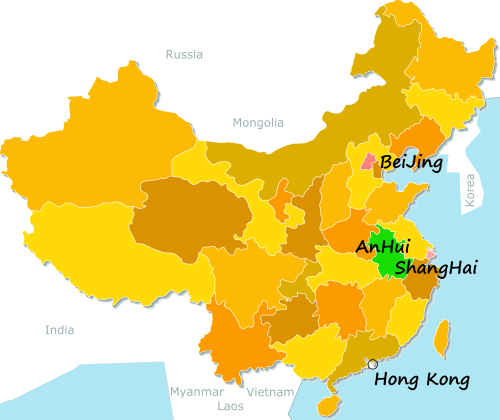
|
With Clare Traveling Pandaland ...
Tengchong, Yunnan Province: A Visitor's Guide
Tengchong, located in the western part of Yunnan Province near the border with Myanmar, is a gem of natural beauty, rich history, and unique culture. Known for its volcanic landscapes, hot springs, and historical significance, it offers a mix of relaxation, adventure, and cultural exploration.
How to Get There
By Air: Tengchong Tuofeng Airport connects the city to major Chinese cities like Kunming and Chengdu.
By Road: A scenic drive from Kunming takes around 8–10 hours by car or bus, passing through the mountainous Yunnan terrain.
Top Attractions
1. Rehai Hot Springs
Why Visit: Known as "Hot Sea," this geothermal area has over 80 hot spring pools, each with unique properties. Some are perfect for a relaxing soak, while others are too hot and are used for steaming food or traditional therapies.
Don’t Miss: Try the therapeutic spa treatments or soak in an outdoor pool surrounded by lush greenery.
2. Tengchong Volcanic Geothermal National Park
Highlights: Home to dormant volcanic craters and lava fields, this park offers hiking trails with breathtaking views.
Activities: Climb up volcanoes like Dakongshan (Large Empty Mountain) for panoramic views, or explore the Lava Stone Forest.
3. Heshun Ancient Town
Why Visit: A quaint town filled with cobbled streets, traditional Yunnan-style homes, and a rich history of overseas Chinese who returned home.
Must-See: Visit the Heshun Library, one of the oldest private libraries in China, and explore the charming teahouses and ancestral halls.
4. Beihai Wetlands
Overview: This serene area features floating meadows and diverse bird species.
Activities: Take a boat ride through the wetlands or enjoy bird-watching during migratory seasons.
5. Yunfeng Mountain
Why Visit: A sacred Taoist site with an ancient temple at its peak.
What to Do: Hike or take a cable car up the mountain, then enjoy stunning views of the surrounding countryside.
6. Dianmian Anti-Japanese War Memorial
Historical Importance: Tengchong was a key battleground during WWII. This memorial honors the local and international soldiers who fought against Japanese forces.
What to See: Artifacts, photographs, and the reconstructed battle sites.
Cultural Highlights
Traditional Crafts: Tengchong is famous for its jade carving. Visit local workshops to see artisans at work or purchase unique jade jewelry.
Ethnic Diversity: Experience the culture of the Bai, Dai, and Lisu ethnic groups through their festivals, dances, and cuisines.
Local Cuisine
Signature Dishes:
Guoqiao Mixian (Crossing-the-Bridge Noodles): A flavorful noodle soup with a variety of toppings.
Bamboo Rice: Sticky rice cooked in bamboo tubes.
Tengchong Fried Pork: Crispy pork stir-fried with local spices.
Mushroom Hotpot: A must-try with Yunnan’s diverse range of wild mushrooms.
Snacks: Don’t miss the fengmi baba (honey glutinous rice cake) or fried potato balls.
Best Time to Visit
Spring and Autumn (March–May, September–November): These seasons offer mild weather and clear skies, perfect for outdoor exploration.
Winter (December–February): Ideal for enjoying the hot springs, though mornings and evenings can be chilly.
Shopping
Jade and Gemstones: Tengchong is renowned for its high-quality jade. Look for authentic pieces in certified stores.
Local Handicrafts: Embroidered textiles, wooden carvings, and bamboo products make great souvenirs.
Tea: Yunnan is known for its Pu’er and black teas, widely available in Tengchong.
Practical Tips
Language: Mandarin is widely spoken, though some locals speak Yunnan dialects. Learn a few basic phrases for ease of communication.
Currency: Bring enough cash, as rural areas may not accept cards or digital payments.
Transportation: Rent a bicycle or use tuk-tuks to explore small towns like Heshun.
Clothing: Pack layers, as temperatures can fluctuate between day and night, especially in the mountains.
Day Trips
Ruili: A bustling border town with vibrant markets and a mix of Chinese and Burmese cultures.
Myanmar Border: Visit the border towns to experience the unique blend of Chinese and Burmese influences.
Tengchong is a destination that beautifully combines natural wonders, cultural depth, and historical significance, offering something for every traveler.
|

 Scenes from the beautiful HuangShan 黄山 mountain
Scenes from the beautiful HuangShan 黄山 mountain


